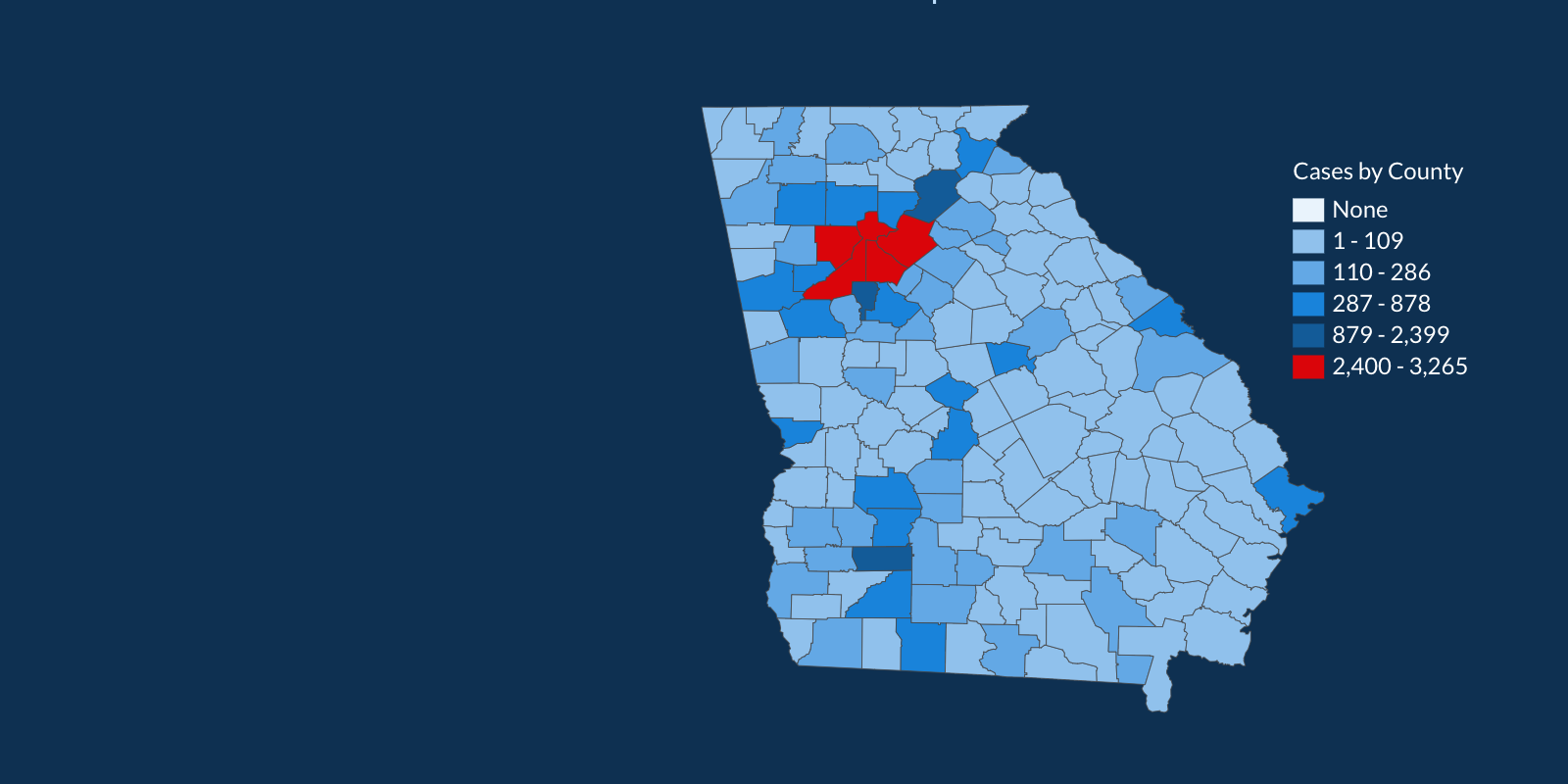Almost four weeks after the State of Georgia began reopening business operations, the state’s Emergency Management Agency (GEMA) is still many months and hundreds of millions of dollars away from the supply of personal protective equipment (PPE) it has projected to be necessary.
Since the state declared a public health emergency on March 16, Georgia has had more than 37,000 confirmed cases of COVID-19. GEMA has received nearly daily deliveries of masks, hand sanitizer, and other gear, but it has only been able to receive a fraction of the essential equipment, like gloves and medical gowns, they have ordered. As more industries begin to rely on these kinds of supplies to protect themselves against the disease, the state is straining to identify and address PPE shortages. It may be months before the state has even a weeklong PPE reserve sufficient for the state’s medical personnel.
“Georgia, like many states, is facing some challenges in regards to PPE availability,” according to Lisa Rodriguez-Presley at the Georgia Department of Emergency Management (GEMA), which is leading PPE procurement efforts for the state. Along with the Department of Public Health (DPH), GEMA is helping to provide resources to county governments and local health facilities. “We do not have any hard timelines for delivery of PPE.”
GEMA has so far placed orders for PPE worth more than $100 million, according to materials received by MuckRock, by far the largest emergency expense for the agency to date. The agency does not pay for these products until they’re received.
“We’re doing absolutely everything we can to fulfill the needs of the medical facilities and first responders across the state,” Rodriguez-Presley said. “It’s been a Herculean effort on the part of our logistics teams.”
The current open purchase orders represent less than a quarter of the state’s ultimate inventory goals. These goals include enough PPE to create a 31-day stockpile for the state, a target based on DPH estimates of PPE “burn rates”. These projections of inventory needs are based on COVID-19 hospitalization numbers and market prices, both of which fluctuate regularly. Georgia recorded its lowest number of COVID-19 hospitalizations yesterday since reporting began on April 8.
Projections for a month-long supply of medical gowns right now amount to almost 2.5 million gowns, currently estimated to cost the state $8.50 a piece and $21 million in total. GEMA has pending orders for a tenth of that quantity and only about 230,000 gowns are on hand now. Johns Hopkins University estimates the group of healthcare workers needed to treat just one COVID-19 patient in the ICU would go through 20 gowns each day, collectively.
To address the shortfalls in acquisition, Rodriguez-Presley said GEMA is relying on corporate donations, including one from Apple of 100,000 N95 masks, an effort led by the Department of Economic Development to leverage business relationships within the state. The agency doesn’t count these gifts into its projections for its purchases.
“We’ve had several donations like that where there’s been significant quantities of PPE that have donated, not just masks,” she said.
Last month, the Federal Emergency Management Agency also sent GEMA a Battelle Critical Care Decontamination System, a shipping container-based cleaning system that will allow facilities in the state to decontaminate and then reuse N95 masks.
Uneven PPE supplies and unreliable numbers have not slowed Georgia Governor Kemp from moving ahead with a reopening plan. Last week, the state DPH had to retract and apologize for a graph it published with disordered days suggesting the state’s COVID cases had declined. The next day, Kemp eased restrictions on summer camps, state employees, and Nascar races.
“The one thing we are concerned with is surgical gowns. We are seeing that market free up,” Kemp said in a public COVID-19 update May 12. “We are in good shape on PPE right now. We are just in a good place and we want to keep these numbers moving in a right direction.”
GEMA, like other state emergency management agencies, however, has not been able to crack a tumultuous market seeing increased demand.
Paulette Rakestraw, a former Georgia state representative and co-founder of Sourceline, one company hired by GEMA to procure PPE, said acquiring masks has become easier in the last few weeks but that the gown and glove markets are currently “crazy and unstable.”
“Prices are changing like the stock market,” Rakestrraw said. “Raw materials are running short, and manufacturers are changing their designs.” Other factors – like minimum order requirements and particular state purchasing procedures — also make the process difficult for counties or smaller buyers.
Rakestraw said her company has been working to group client orders to meet buying minimums. “Even trying to get a supply of 100,000 is complicated in this market,” she said. “The people who are trying to get 100 or 250 pieces really aren’t able to get their hands on it. That’s more like an Amazon order.”
Rather than wait on the state supplies, counties within the state are continuing to order additional supplies on their own. Officials in Fulton County, which contains Atlanta and has the most COVID-19 cases in the state, recently said the county plans to build its own three-month-long PPE reserve. Commissioners have also discussed, but not committed to, creating a reserve specifically for the public’s use. The county has had more than 3700 cases of COVID-19.
Despite the challenges, some counties do feel prepared when it comes to PPE. Officials In Hall County, for example, where a recent outbreak gained national attention, say they have what they need.
“The assistance provided by the State of Georgia enabled us to continue to provide needed PPE to our emergency medical services and law enforcement agencies throughout Hall County,” said Casey Ramsey, Hall County’s Emergency Management Director. “While some agencies have received some donated supplies, our plan is to continue to operate under the assumption that these will not continue and proceed with regular orders to our supply chain and the State of Georgia.”
To learn more about the demand from the counties and the distribution of supplies, MuckRock has sent a request to GEMA for the requests for PPE it has received and requests for PPE procurement to the other state emergency management agencies. We will update this story as those requests are fulfilled.
This report is from COVID Public Info, a non-profit news collaboration.
Image via Georgia Department of Public Health




